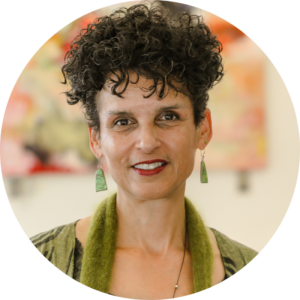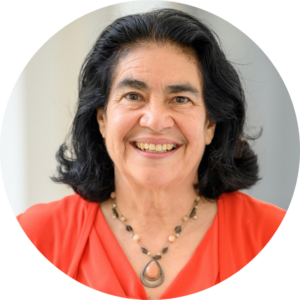
03.14.24 — Northeastern Law’s Center for Law, Equity and Race (CLEAR), in collaboration with Suffolk University’s Center for Restorative Justice (CRJ), held the commonwealth’s first-ever training in community-centered, restorative justice practices for Massachusetts state court judges. The innovative, four-day program, which took place October 14 and 21, 2023, was funded by the Chief Justice Ralph Gants Fund for Racial Equity and Access to Justice, with assistance from the Massachusetts Bar Foundation. It was delivered by Susan Maze-Rothstein, director of the CRJ and a former member of the Northeastern Law faculty, to members of the Justice Harry J. Elam Judicial Conference.

“For a long time, I’ve believed that restorative justice is a way for judges and communities to address the underlying problems that bring people into the courthouse, including poverty, homelessness, mental illness and substance use disorder,” said Professor Deborah Ramirez, faculty co-director of CLEAR. “We hope this will serve as a model for other court systems in and beyond Massachusetts seeking restorative justice training for judges and employees.”
As chair of CLEAR’s Criminal Justice Task Force, Ramirez created a restorative justice subgroup, led by Maze-Rothstein. Members of this subgroup and the Task Force, including US District Court Judge Angel Kelley, developed a restorative justice pedagogy for state and federal judges.
“Susan is a pioneering advocate for restorative Justice,” said Ramirez. “She has inspired all of us to use restorative justice practices to enrich and heal our communities. She is a trailblazer whose passion and dedication were the force behind this project.”
The program was designed to offer judges the skills and techniques with which to honor the identity and ideas of persons involved and bring parties together to address harms, many of which were developed and honed by CRJ educators. Founded in 1997, CRJ provides public education, training, technical assistance, research, evaluation and scholarship on issues related to restorative justice and racial disparities within the criminal system.
The Justice Harry J. Elam Judicial Conference was formed in 1977, originally named the Massachusetts Black Judges Conference, by Justice Harry J. Elam, the first Black judge appointed to the Boston Municipal Court. Its mission is to support justices of color in the state and federal judiciary, to educate its members and the bar, to be a visible presence and voice for people of color, and to provide a perspective of persons of color and ethnicity who are underrepresented in the judiciary.
Northeastern Law’s Center for Law, Equity and Race brings together the school’s pioneering programs and faculty — including the nationally recognized Civil Rights and Restorative Justice Project and the Criminal Justice Task Force — to address today’s challenges and provide tomorrow’s solutions for the nation’s most complex social challenges.
About Northeastern University School of Law
The nation’s leader in experiential legal education since 1968, Northeastern University School of Law offers the longest-running, most extensive experience-based legal education program in the country. Northeastern guarantees its students unparalleled practical legal work experiences through its signature Cooperative Legal Education Program. More than 1,000 employers worldwide in a wide range of legal, government, nonprofit and business organizations participate in the program. With a focus on social justice and innovation, Northeastern University School of Law blends theory and practice, providing students with a unique set of skills and experiences to successfully practice law.
For more information, contact d.feldman@northeastern.edu